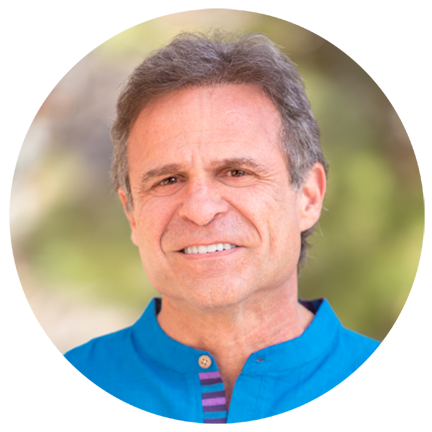Yes, trauma is often related to dysfunctional families. That can be true at any age. As a child, trauma is often caused by family members, either through action or neglect. And as an adult, you may be drawn to people who remind you of those who hurt you before.
But you don’t have to stay in this pattern. In fact, you can not only overcome trauma but live a better life than you ever did before. And you can start that journey with holistic recovery from childhood trauma.
The Long-Term Impacts of Childhood Trauma
Painful memories can be all-consuming. If you survived trauma as a child, it’s important to process what you’ve been through. Otherwise, you may experience ongoing symptoms, like flashbacks and emotion dysregulation.
It can be hard to know if your family was dysfunctional, or if your childhood was traumatic. As young people, we have little basis for comparison. Most of us assume that our families are “normal,” without yet knowing what normalcy means. But if you do come from a dysfunctional family, it can feel affirming to recognize that you’re a trauma survivor.
Defining Childhood Trauma
How can you tell if your childhood was traumatic? Researchers answer this question using a list of adverse childhood experiences, or ACEs. Some of them, like physical abuse, are easy to recognize. Others may be less obvious. For example, living with a mentally ill person as a child is a form of trauma.
Physical and emotional neglect can also be traumatic. Many people try to brush off these painful memories. “It could have been worse,” you might tell yourself, “at least no one tried to hurt me.” But the fact is, neglect does hurt. It might not be intentional, but there’s a difference between intent and impact. Even if your family meant well, you might have experienced trauma.
A Painful Legacy
Dysfunctional family dynamics can repeat through generations, for a few reasons. If you grow up with poor examples of healthy relationships, it’s easy to repeat your parents’ mistakes. Some families get stuck in this pattern. Some studies call it the “intergenerational transmission of domestic violence.” In layman’s terms: children who grow up with abuse are more likely to be in abusive relationships as adults.
Behavioral patterns are just one type of family dysfunction. trauma is passed down. Trauma can also be passed down through epigenetics. As a person goes through life, certain experiences can change their DNA. These changes are called epigenetic modifications. And you can pass those altered genes on to your children. Preliminary research suggests that some trauma symptoms can be inherited. If your parents survived childhood trauma, that history may impact your emotional experience. That might be true even if you grew up in a happy home.
Making Sense of Traumatic Memories
Many people also block out their most painful childhood memories. And if you grew up in a dysfunctional family, the adults around you might have encouraged that. They may have been trying to protect you or to avoid accountability. Either way, that kind of misinformation can damage your mental health.
But even if you don’t remember exactly what happened, you’ve made it this far. That’s something to be proud of. And to get here, you used the best coping mechanisms you could. In recovery, you can decide whether those strategies are still working for you. If they’re not, you can find a new way to move forward.
Beyond Blame and Shame
If you grew up in a violent home, you may have participated in violence. You might have been blamed for things you didn’t do, or punished unfairly for things you did.. Maybe you had to fight back, with words or actions, to keep yourself safe from something even worse. But remember the context.
No child deserves abuse.
Dysfunctional family dynamics are no one person’s fault—least of all that of a child. It’s natural to feel guilt and shame about poor behavior. And those feelings have a purpose: they can prevent you from acting that way again. As an adult, that’s an important lesson. But you don’t have to keep blaming your younger self.
Holistic Treatment for Family Trauma
In holistic trauma treatment, you can learn to accept that you did what you had to do to survive. And to thrive, you’ll need to develop new coping mechanisms.
Validating your own experience is the first step toward recovery. That doesn’t have to mean assigning blame or recounting every detail. You can even start by acknowledging that you still have questions. Holistic recovery might help you answer them—or it might help you make peace with not knowing. Either way, you can eventually learn to reclaim your power and rewrite your own story.
You are so much more than your trauma. Treatment at The Sanctuary honors the complexity of your experience. With our help, you can integrate the many aspects of your identity into one healthy self. To do that, you’ll spend time healing your mind, body, and spirit.
Physical Recovery
Trauma lives in the body. Because of this, we offer several treatments that help you physically heal from emotional trauma. Several of our treatments focus on this aspect of recovery.
All our meals are organic. They’re also prepared by gourmet chefs who understand the value of good nutrition. Eating here is a mindful exercise, intended to nourish your body and mind at the same time.
Victoria Abel, Addiction Nutritionist, explains the neural pathways of the digestive tract impact our emotions. Eating well is “one of the most important things that we can do when we’re healing from mental health issues,” she says. Cultivating a healthy gut can help you recover from trauma.
Physical health starts with nutrition, but that’s only the beginning. You can also reconnect with your body through mindful movement. Our trauma-sensitive yoga classes, for example, are designed to help clients feel safe and empowered.
Experts agree that yoga can help alleviate the ongoing symptoms of past trauma. This practice improves “somatic regulation and body awareness, which are imperative to emotion regulation.” Calming and strengthening your body can have the same effect on your heart and mind.
Healing Your Mind
There’s more to talk therapy than talking. This treatment lets you delve into your emotions in a safe, private space. With your therapist as a guide, you can process your most difficult memories and emotions. By understanding those experiences, you can learn to live with them in a healthier way. We offer several types of psychotherapy, including but not limited to the following:
- cognitive behavioral therapy (CBT)
- cognitive processing therapy (CPT)
- Eye Movement Desensitization and Reprocessing (EMDR)
- group therapy sessions
During treatment, you’ll work with our staff to determine which of these modalities are right for you. Each client’s needs are different. You might find meaning in some or all of these types of therapy, and your needs may change during your time here.
Some people also benefit from taking medications. Depending on your needs and goals, that could look a few different ways. For example, you could work with a psychiatrist to find the right prescription. You might even keep taking that medication after you leave The Sanctuary.
Whether or not you take an ongoing prescription, you may also be a candidate for ketamine-assisted treatment. This treatment is administered on-site, under close medical supervision. You’ll relax in a calm environment, entering a meditative state alongside other clients. Afterward, you’ll discuss your experience and share a meal together.
All these treatments can help you work through painful memories. In that process, you’ll gain insight into the effect your past trauma has on your present reality. Then, you can start thinking about what comes next.
Reclaim Your Energy
Our energy informs all that we do, on a great or small scale. You’ll drive a car in one way when you’re tired, and another way when you’re angry. The same is true for work, conversations with friends, and the way we process trauma.
Dean Taraborelli, the founder of The Sanctuary, explains why energy medicine is so powerful. This treatment can help you release the energetic “charge” of your underlying emotions. “Something that’s highly charged is difficult to change,” he says. But when your treatment includes energy work, “therapy becomes more effective.”
Energy medicine is not a substitute for talk therapy or physical healing. But it can set the stage for a more integrated recovery process. No matter what you’ve been through, this holistic approach can help.
Trauma and Addiction
Even if you first enter treatment for an addiction, that’s probably not your only concern. For most clients, “there is something else going on,” says Program Director Kelley Alexander. “There is an underlying root cause that we need to really get at. And almost always, this underlying root cause — this trauma — starts in childhood.”
Trauma often leads to drug abuse. And if you come from a dysfunctional family, addiction treatment is just one piece of the puzzle. At The Sanctuary, you can explore the relationship between these conditions in a holistic way.
Feel Whole Again
Integrated recovery doesn’t just medicate your symptoms. Instead, our program treats you as a complete person, with unique needs and goals. With the right support, you can start planning for a future that honors those values.
You can’t undo your trauma. If you grew up in a dysfunctional family, you may always remember that past. But there’s no need to live in fear of repeating your painful history. Complete recovery is absolutely possible.
With holistic trauma treatment, you can break free of your family history. Connect with us to start getting the care you need.

He is the Founder, Administrator, Counselor at the Sanctuary at Sedona.
He has a BA in Political Science and is currently Senior teaching staff at Four Winds Society, an international school of energy medicine. His credentials also include being an Ordained Minister; a Certified Shamanic Breathwork® Facilitator; a Founding Member Society for Shamanic Practitioners; a Member of Association for Comprehensive Energy Psychology; a Member of the National Institute for Holistic Addiction Studies. [email protected]

